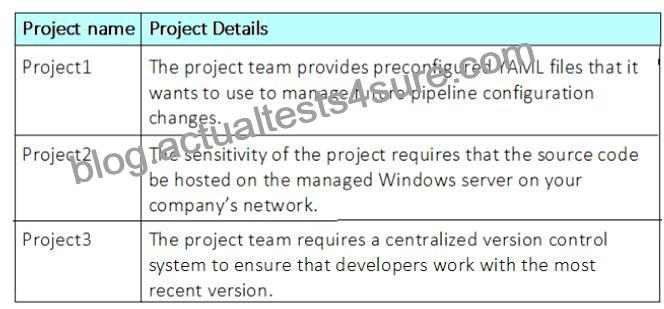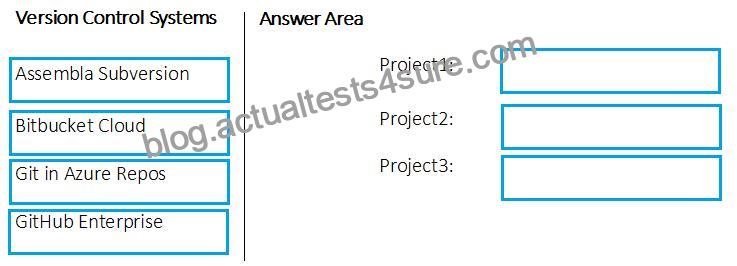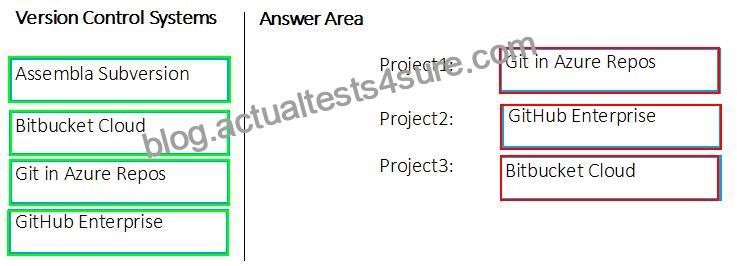NO.175 You are configuring Azure Pipelines for three projects in Azure DevOps as shown in the following table.

Which version control system should you recommend for each project? To answer, drag the appropriate version control systems to the correct projects. Each version control system may be used once, more than once, or not at all. You may need to drag the split bar between panes or scroll to view content.
NOTE: Each correct selection is worth one point.


Explanation:
Project1:Git in Azure Repos
Project2: Github Enterprise
GitHub Enterprise is the on-premises version of GitHub.com. GitHub Enterprise includes the same great set of features as GitHub.com but packaged for running on your organization’s local network. All repository data is stored on machines that you control, and access is integrated with your organization’s authentication system (LDAP, SAML, or CAS).
Project3: Bitbucket cloud
One downside, however, is that Bitubucket does not include support for SVN but this can be easily amended migrating the SVN repos to Git with tools such as SVN Mirror for Bitbucket .
Note: SVN is a centralized version control system.
Incorrect Answers:
Bitbucket:
Bitbucket comes as a distributed version control system based on Git.
Note: A source control system, also called a version control system, allows developers to collaborate on code and track changes. Source control is an essential tool for multi-developer projects.
Our systems support two types of source control: Git (distributed) and Team Foundation Version Control (TFVC). TFVC is a centralized, client-server system. In both Git and TFVC, you can check in files and organize files in folders, branches, and repositories.
References:
https://www.azuredevopslabs.com/labs/azuredevops/yaml/
https://enterprise.github.com/faq






